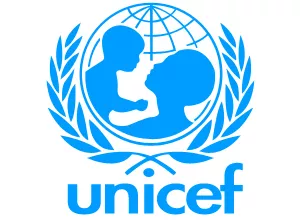Education Officer NOA , FT Mongo (Chad)
Job no: 506691
Work type: Fixed Term Staff
Location: Chad
Categories: Education
Applications close: W. Central Africa Standard Time
| I. Organizational Context and Purpose for the job
The fundamental mission of UNICEF is to promote the rights of every child, everywhere, in everything the organization does — in programs, in advocacy and in operations. The equity strategy, emphasizing the most disadvantaged and excluded children and families, translates this commitment to children’s rights into action. For UNICEF, equity means that all children have an opportunity to survive, develop and reach their full potential, without discrimination, bias or favoritism. To the degree that any child has an unequal chance in life — in its social, political, economic, civic and cultural dimensions — her or his rights are violated. There is growing evidence that investing in the health, education and protection of a society’s most disadvantaged citizens — addressing inequity — not only will give all children the opportunity to fulfill their potential but also will lead to sustained growth and stability of countries. This is why the focus on equity is so vital. It accelerates progress towards realizing the human rights of all children, which is the universal mandate of UNICEF, as outlined by the Convention on the Rights of the Child, while also supporting the equitable development of nations. Job organizational context: The Education Officer GJP is to be used in a Country Office (CO) and the Education Program is a major/key component of the Country Program (or UNDAF). Purpose for the job: The Education Officer reports to the Chief Field Office for close guidance and supervision. (The Level 1 is an entry professional level and should therefore be normally used as a trainee level for the purpose of acquiring organizational knowledge of rules, regulations and processes to supplement academic and theoretical knowledge of the profession for upward mobility to higher responsibilities). Incumbents at this level are not expected to remain for an extended period of time in the post. The Education Officer provides professional technical, operational and administrative assistance throughout the programming process for the education programs/projects through the application of theoretical and technical skills in researching, collecting, analyzing and presenting technical program information while learning organizational rules, regulations and procedures to support the development and formulation of the Education Program within the Country Program. |
| II. Key function, accountabilities and related duties/tasks |
| Summary of key functions/accountabilities:
1. Support to program development and planning 2. Program management, monitoring and delivery of results 3. Technical and operational support to program implementation 4. Networking and partnership building 5. Innovation, knowledge management and capacity building |
1. Support to program development and planning
|
2. Program management, monitoring and delivery of results.
|
3. Technical and operational support to program implementation
|
4. Networking and partnership building
|
| 5. Innovation, knowledge management and capacity building
Provide support in identifying, capturing, synthesizing and sharing lessons learned for knowledge development and capacity development of stakeholders.
· Research, benchmark and report on best and cutting edge practices for development planning of knowledge products and systems. · Participate as resource person in capacity building initiatives to enhance the competencies of clients/stakeholders. |
III. Impact of Results |
| The efficiency and efficacy of support provided by the Officer to program preparation and planning and implementation of programs/projects, contribute to achievement of sustainable results to improve learning outcomes and equitable, inclusive and universal access to education. Success in education programs and projects in turn contribute to maintaining/enhancing the credibility and ability of UNICEF to provide program services for mothers and children that promotes greater social equality in the country. |
| IV. Competencies and level of proficiency required (based on UNICEF Professional Competency Profiles) | |
Core Values
Core competencies
| Functional Competencies:
Formulating strategies and concepts (I)
|
| V. Recruitment Qualifications | |
|
Education: | A University Degree in education, psychology, sociology or other social science field is required. |
| Experience: | A year of professional experience in social development planning and management in education and/other related areas at the international and/or in a developing country is an asset. |
| Language Requirements: | Fluency in French and good understanding of English is required. Knowledge of a local language is an asset |
Applications close: W. Central Africa Standard Time
